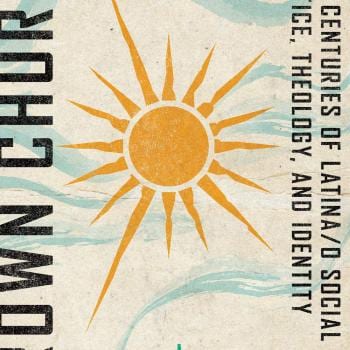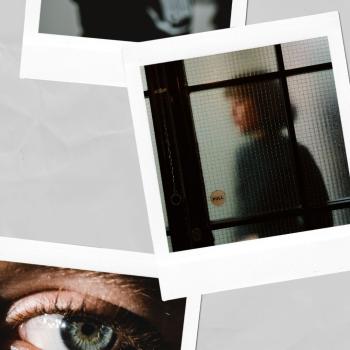By Matthew Potts
Even the most casual observer of Christianity over the last decade will have noticed that most, if not all, of the mainline denominations continue to be rent by conflict over the issue of homosexuality. In most denominations this conflict has taken the form of argument over the status of gay and lesbian persons seeking to be (or already) ordained. And among the mainline churches, perhaps no denomination has suffered more divisively and more publicly than the Episcopal Church. Numerous Episcopal parishes and four whole dioceses have seceded from the Episcopal Church and are establishing their own new and independent governance. Lawsuits over property and finance fly back and forth between former friends. Both serious reporting and off-hand joking about the schism have circulated throughout all the major media outlets, from the New York Times to The Daily Show. And since every media outlet, large or small, maintains a presence on the internet, Episcopal clamor attending the argument over homosexuality has carved out a significant place for itself on the web as well as in the world.
As an Episcopal priest and student of religion, I have to admit that much of what is published on the internet regarding this controversy concerns me. In perhaps too clear a mirror of the Church at large, on the Episcopal internet there’s a whole lot of diatribe and not much dialogue. It’s not uncommon to find conservative websites bandying about rather hurtful turns of phrase. In a recent forum, one poster congratulated the site’s host for “going into the lions' den and bearing faithful witness in the presence of evil people.” Others complained that their opponents have “infected the body of Christ” and contend that conversation is impossible when “the person across the table from us has lost touch with reality.” Liberal sites are sometimes less direct than their conservative counterparts, but can be just as sweeping and unfair in their characterizations of those who disagree. A brief surf through the relevant websites shows a bit less vitriol from the left, but words like “naïve,” “outdated”, and “evil” still appear. Official church websites, meanwhile, lumber along bureaucratically and seem to pretend the controversy doesn’t exist at all. Apart from church news providers which can’t avoid reporting on these issues, the slick polish of official sites gives no sign whatsoever that we are a communion in dire crisis.
It’s all rather surprising to me, really. I’ve been part of two congregations since this crisis began in 2003, the first a small, suburban church in conservative Grand Rapids, Michigan, and the other a mid-sized, urban parish in liberal Boston, Massachusetts. And in neither place did I encounter the certainty, stridency, and extremity which characterize so much of unofficial Episcopal web content. I didn’t find much of the complacency and polish of the official church’s web presence either. In my experience, people in the pews are uncertain and hurting. A lot of that hurt comes from things like war and recession, but some of it’s from this crisis too. And most hurting people in the church really aren’t so sure what they think about homosexuality. Even the ones who are pretty sure still worry a lot about how to hold that belief firmly while yet loving and accepting the people in their church who differ. For most Episcopalians, this issue isn’t about a bishop in New Hampshire or Nigeria with whom they disagree; it’s about friends and parishioners in their own church. It’s about people we’ve shared the altar rail with and studied the bible with and painted the church basement with for years and sometimes decades. It’s about watching these people leave or deciding to leave these people, and we rarely do it with the venom or vengeance that is reflected on the web. Whatever the internet says, in the end this crisis is about real relationships, and the pain of their breaking is real too, not just rhetorical.
What’s missing on our internet, I think, is what’s tragically missing in our church. Too often our voices on the web, like our voices in the church, shout down the many moderates in the middle who are trying quite hard to live through this crisis honestly. In other words, they are struggling to be good Christians while still being good neighbors, and these earnest, hurting people don’t get much press. While factions on the edges clamor and curse, the church sits in the middle trying to hear itself think. And pray. If people in the pews are uncertain and hurting, then what we need most, I think, is a place collectively to remember that uncertainty and hurt are profoundly Christian positions. Uncertainty and hurt won’t condemn us, that’s the lesson of Easter. But too much certainty and hurtfulness just might. My hope for the Episcopal web is the same as my prayer for the church: for a space where we can bare our wounds to each other honestly, struggle to become better neighbors, and pray for God’s grace to renew us as Christ’s wounded but risen body.
Matthew Potts is a priest of the Episcopal Diocese of Western Michigan and co-founder of the Touching Tiny Lives Foundation, a non-profit which supports anti-HIV work and orphan care in southern Africa. He has served as a minister to the homeless in Phoenix Arizona, as a hospital chaplain in Kalamazoo, Michigan, and as a U.S. naval officer in Yokohama, Japan. Presently he pursues doctoral studies at Harvard University in the field of religion and society.
1/1/2000 5:00:00 AM




